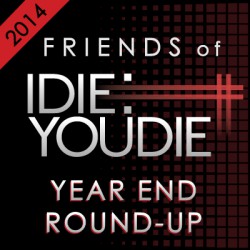
Hola, chochachos! It’s about that time of the year that we here at I Die: You Die start wrapping things up with our various end of year lists, articles, and podcasts, and as is tradition we’re kicking it off with some contributions from various friends of the site. We pick a bunch of folks we know from our community of musicians, podcasters, writers, label folks and whoever else and ask ’em to write up an album they like. It doesn’t have to be their favorite or what they consider “the best” LP of the year, just something they’d like to write a few words about. It’s always one of our favourite parts of rounding the year off, mostly because it hips us to a bunch of albums we may have been sleeping on and gives us some different perspectives on some records we have heard. Enormous thanks are due to all of our contributors, and if y’all like what you read below, please make sure to check out some of the albums mentioned!
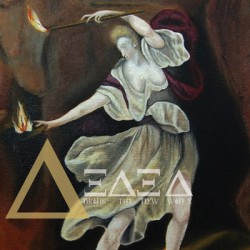
Nancy Showers of ∆AIMON
If you ever feel like getting hopelessly lost at sea on a pitch black night, Drink The New Wine by AEAEA is what you should listen to. This album is the ominous and enchanting result of a collaboration between Jarboe, Kris Force, Anni Hogan, Meredith Yayanos, and Zoë Keating – a supergroup in terms of experimental and chamber music, if there can be such a thing. Despite the eclectic background of the members, the album stays consistent in its foreboding mood and its thematic tribute to the mythological sorceress, Circe. The prelude enthralls and guides you to Circe’s home of Aeaea, where you wake to hear Kris Force’s transcendent, operatic vocals on “Another Day.” Other highlights on the journey are the earthly and indulgent title track, the ghostly chanting and strings in “The Light Is All,” and the hazy, hallucinogenic “Ocean,” which features a spoken-word spell by Jarboe. The album is atmospheric, but always alive with a dark and sometimes disorienting energy. Perfect for those shipwrecked nights.
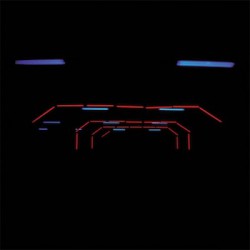
Jill Grant of Take it For Granted Photography
Trust’s second album, Joyland is one of the few releases from this year that I keep going back to again and again. It is pleasant, soothing and uplifting while managing to also be unpredictable, unique and a little bit dark. What fellow Torontonian Robert Alfons does with his voice is just fascinating. You get that deep, sexy crooner ambiance alongside high-pitched, cutesy melodies. All of this is layered in delicious, synthy bliss. One of my favourite moments is the loon call at the end of the single, “Capitol.” I can’t help but be transported to one of my happy places, relaxing by a quiet northern lake on a summer day. You might assume the cry of glee at the beginning of the song is my reaction to this vision. Highlights are not limited to the singles, which also include “Rescue, Mister” and “Are We Arc?” The entire album is truly solid, full of emotion and sure to induce dancing.
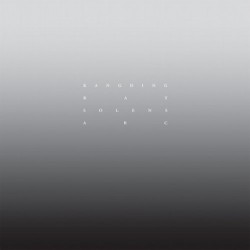
Scott Fox of iVardensphere
While in Boston for a performance, I found myself sitting in a living room, shooting the breeze with Dave Christian (aka Cervello Electtronico). The music playing in the background kept pulling me away from the conversation to the point where I was ignoring Dave so that I could focus on this amazing sound. Kangding Ray had never really captured me previous to that moment as, while I found them good, they seemed rather samey and thus he went under my radar. Solens Arc changed everything. Each song seems to be an experiment in dismantling contemporary sensibilities in favor of dreamlogic. With one foot firmly entrenched in the German minimal techno scene, the aesthetic of Solens Arc explores the spaces between the builds, the bass drops and leads in a way I hadn’t heard since Iszoloscope’s The Audient Void.
The grooves and rhythms of Solens Arc, as engaging as they are, seem as much as a facilitators for shifting between atmospheres decay and the subconscious as they are focal points of the music. Deciding to avoid any conventional song structure, David Letellier brings drums, leads, basses and ambiance in and out of the music seamlessly creating the sensation of endlessness. It’s this flow within the songs, and through the album as a larger whole, that is the real magic. Solens Arc was written as a conceptual piece based around four parts (or arcs) with three songs each, one part per side of an LP. Each of the songs are a beginning, middle and end to that arc.
This album is beauty, darkness, rhythmic genius and large beyond the ability to absorb quickly. Not only is it my favorite release of this year but it’s a contender for my favorite release of the last five.
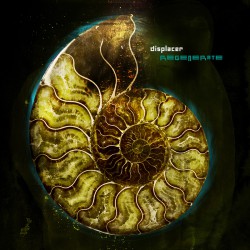
Kathleen Chausse, I Die: You Die contributor
This might be cheating, but i would like to present Displacer’s Recollect and Regenerate. I think they are best enjoyed as a pair. They were released later in the year, and late releases deserve some more love. Both were released for Halloween and are pay what you can releases. These are not your average remix album concept though. Regenerate is a collection of Displacer’s tracks that expand across his discography but are reimagined through other artists. The tracks that stood out are “The Witching Hour (Pattern Behaviour mix)”, Warbound (Crystal Touch mix by Rentip), and Broken Sword (Prospero’s vox trax). On Recollect the idea is mirrored: it’s a collection of tracks by various artists only with Displacer doing the remixing this time, including a catchy Tears for Fears remix. These albums could stand alone but I enjoy them as a pair to follow though with the concept. It’s great introduction to Crime League, upcoming and great artists have to offer.
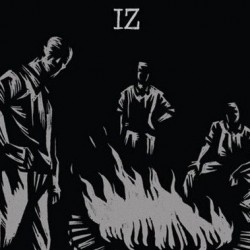
S. Alexander Reed of Seeming, author of Assimilate: A Critical History of Industrial Music
There is so much music that deserves the attention of darkwave aficionados in 2014: Pharmakon is the Diamanda Galás-meets-Skinny Puppy roar we’ve all secretly wanted for years; Cyclobe carries the legacy of Coil admirably; Puce Mary coughs up more ferocity and variety than you’re likely to hear from any one artist; Lykke Li’s “Gunshot” and Zola Jesus’s “Dangerous Days” should be getting play in every goth club on Earth.
But the record that I latched onto most this year is Echo (also called Jangqerek), the remarkable, deeply textured and kinda-danceable third LP by IZ. IZ comes from Kazakhstan and China, and is fronted by Mamer, whose earlier folkish efforts were marketed to the worldbeat crowd by Peter Gabriel’s Real World Records. Make no mistake, though: this music of IZ is industrial, through and through. They’ve seized upon the genre’s immediate relevance to the lives of post-Soviet Kazakhs and of Chinese audiences living in the world’s manufacturing supercapital.
On Echo‘s opener “Akpan,” Mamer’s voice resembles Mark Spybey in his angrier sessions with Download. The layered wall of vocal effects abrades a springy burble of wet, wormlike throbs. The sound is foreboding and sad: a factory full of machines abandoned in the “on” position, winding down in despondent reverberation. Throughout the album, IZ combines Einstürzende Neubauten’s early-era raucous chain-clattering with their latter-day meditative sagacity. From a marked distance, IZ has studied the masters well; the band could be called the greatest correspondence learners in industrial music. Their work is timbrally rich, rhythmically kinetic, and deeply soulful. Repeat listening is all but guaranteed.
Record labels, pay attention when I say this: IZ is a band waiting to become big in the west. It’s just one Nitzer Ebb support tour and a best-of/remix 2CD away. (But I call dibs on a club mix.)
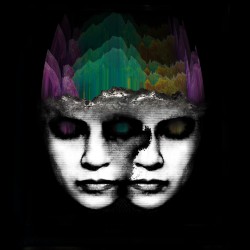
Wesley Mueller of reakt[ion] and Talking to Ghosts Podcast
There’s only been a handful of albums this year that, as full albums, have been played on repeat for me. Chrysalide’s Personal Revolution, Animal Bodies’ The Killing Scene, Run The Jewels 2, and V▲LH▲LL’s Leaning on Shadows are some of the few that fall into this rarified category. Metal Mother’s Ionika, however, not only falls into this category, but also has operated as a catalyst for me.
The album mixes a keen pop production sensibility with witchy tones, expertly crafted percussion lines, and stories of self reflection. It’s not exactly witch house, but it’s not exactly anything else either. The album listens well as an album; each song flows into the next as though it was crafted as a whole, something often missing from the construction of an album in a moment of buying individual tracks.
For me, this album also represents something – a call to explore.
I got a chance to see Metal Mother here in Portland, and the show revealed to me a scene I had not been aware of in my city: there is a scene that is energized and excited, and it exists totally separate from the scene that I run in. Seeing this scene has led to a personal need to explore what’s happening outside of the scene that I’ve lived within for the past eight years, as well as a need to bridge this gap and work with these artists and fans that had been unknown to me.
I encourage all to listen to this album, and go out into your own cities; look for the amazing things hidden in unfamiliar names on power poles and bar windows.
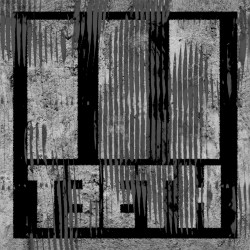
Matt Fanale of Caustic, Prude, the Causticles, a bunch of other fucking bands
My final decision on which album to cover for this article came down to one thing – execution. Part of me felt like this was sort of a cop out, as we heard about these guys everywhere, but they merit talking about some more. U2 may have gotten the big headlines this year with their major, corporate financed release, but the band that took indie marketing to the next level and DIDN’T disappoint with their album was 3TEETH and their eponymous debut.
Lex and Co’s debut brought a lot of us back to what got us into late 80s, early 90s industrial in the first place – big hooks, chugging guitars, and a bitching blend of showmanship and visual propaganda (see #operationmindfuck) that piqued the curiosity of a growing fan base for an entire year before the album hit. Rarely does an album match the hype these days, but 3TEETH tore the roof off when it hit the airwaves. Tracks like ‘Dust’, ‘X-Day’, and ‘Master of Decay’ forced even the most cynical listener to acknowledge that there was something special here, and with them quickly demonstrating their live chops at festivals like Terminus and Cold Waves, 3TEETH are in the enviable position to have hit the ground running. Let’s hope they can keep the momentum, as a lot of us are excited as hell to see what they offer up next.
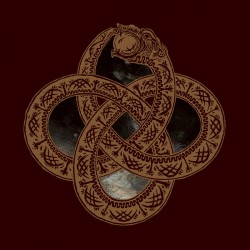
Michael Kurt of [product] and Talking to Ghosts podcast
From the opening chords strummed out in distorted and almost painfully slow hymnals to the building, ever cascading noise that could shake forest laden mountains in deep winter, Agalloch’s 2014 release The Serpent & The Sphere accurately encompasses everything that I feel connected to the olden, hardened core that is Black Metal in the Pacific Northwest. Wes (partner in crime – Talking to Ghosts Podcast) and I had the pleasure of seeing them on their rare appearance here in P-ortland to a sold out crowd and I can tell you that out of the hundreds of shows that I have seen in the last few years, this was hands down one of the best performances. Favorite tracks: “The Astral Dialogue,” “Dark Matter Gods,” and “Celestial Effigy” which happen to be in that order on the album for good reason – together they form the core of what Agalloch embodies to me.

Karyn, I Die: You Die Contributor
Though the courtship was slow-going at first, FKA twigs’ debut LP stole my heart. When she chants “I hate myself” in the introductory track, all echoing ethereal falsetto, it seems less confession than mantra. The darkness is abundant, yet she does not wish to be delivered from it. She spends the rest of the album harnessing it. It is relief and revelation: feminine misery as matter of fact – shameless, self-aware but never navel-gazing. Instead, she stares straight at you and through you.
Her dark power recurs throughout with a gloomy wash of reverb over claps, metronome clicks, and shimmering pads. In “Video Girl”, she takes the third-person to herself, reflecting on her past ambition and idealism and the emptiness they masked, vocals layered for maximum feels. She chides her past self for her denial (“you lie, and you lie, and you lie”) over a gorgeous ringing vocal loop. Mendacious though she may have been, LP1 is a record not only of her pain and her truth, but her of her eagerness to own them.
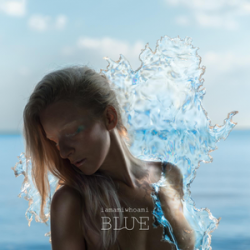
Kassi Cork of MEND
BLUE by iamamiwhoami is a powerfully moving, narratively surreal and downright beautiful multimedia album. If you aren’t familiar with this Swedish duo, do yourself a favor and clear your schedule because you are going to need to devote some time to get the full appreciation of this audio/visual work. BLUE is the third release from iamamiwhoami. As with their previous two albums, each track was released in conjunction with it’s own video that interconnectivity weaves together with each subsequent video to tell a story. The music of BLUE flows upon sweeping synths, both lush and uplifting, which seems to be representative of the vastness of the Icelandic shoreline – the setting of most of the companion videos. It’s an album of change and of growth both lyrically and musically. Jonna Lee uses her expressive and haunting voice to tell her story atop electronic music that would best be described as synthpop. Although, don’t let that scare you away, there is so much more to it – imagine if the Knife, Trent Reznor, Bjork and Lady Gaga all got together to make an album. Although, iamamiwhoami is a project uniquely their own and that is what is truly special and sets them apart from others.
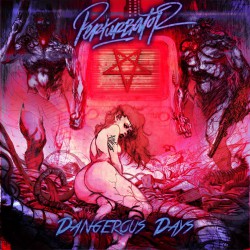
Matt Polar, man of the internet, Analog Dreams
It’s become a bit of a running joke amongst my peers how much I’ve thrown in with the surging wave of retro synth music rushing out of Bandcamp, but you know what, if having fun is so bad then call me the Big Bad Wolf. This year was a biggie for the genre, and no albums exemplify this quite like Perturbator’s audacious and well-received Dangerous Days. It’s a concept album of sorts, sitting comfortably in the sub-genre of “soundtracks for films that never existed” that has inspired much of the retro synth movement’s best work; in this case, the near-future megalopolis of Nocturne City is the site of the birth of S.A.T.A.N., a familiarly nefarious computer bent on world destruction. Deeply indebted to the undercurrent of John Carpenter-inspired love of ‘80s horror and Italian giallo cinema, the album is drenched in a sense of overblown menace that makes no effort to be subtle. Low, rolling synth lines and anxiety-driven soundscapes give way at a moment’s notice to big, brassy leads and pulsing beats so high on the BPM count that it’d make all but the most seasoned SweBM fan’s head spin. If you still love sitting down to watch Escape From New York, Hardware or any of the multitude of doomed-future sci-fi epics that eighties cinema excelled at, take this one for a spin.
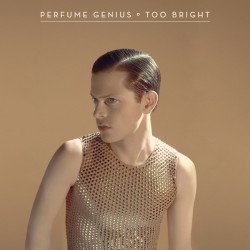
Shannon Malik of Signifier Records
This year marked a huge shift for me in terms of what I spent time listening to. Maybe I’m getting old and soft, but indie rock and lesser known electro pop influenced artists seem to take over the sacred space that rhythmic noise and harsher electronic sounds once owned.
For that reason, since I am charged with the task of talking about one album that has been significant to me during 2014, not rambling on and on about ALL of the albums I’ve loved, I must give the balance of this space to one of the most astonishingly beautiful and raw artists that I’ve come across this year: Perfume Genius.
Perfume Genius, the project of Emerald City resident Mike Hadreas, is delicate, real, and raw. The new album, Too Bright, aptly describes how it feels to spend time with this record; it is so pretty it hurts. In this third full length release, Hadreas is at times anthemic with a tender touch of gorgeous defiance made strikingly palpable through the speakers. The songs smack of the artist’s truth and showcase an uncanny ability to turn a story inside out, spilling forth a quivering, messy light.
What is it? It almost doesn’t matter… you just need to listen and sit with this music. But of course if that’s not enough to convince you, you might like this if you dig artists such as Trust, Austra, or The Antlers. Or you might like it if you are trying to develop a very specific thing for experimental folksy indie pop with an electronic and occasionally bluesy bent.
Hadres is a future icon; it’s just that nobody knows it yet.
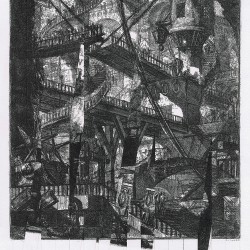
Jairus Khan of Ad·ver·sary
I by Extreme Precautions is eleven songs, 22 minutes, 240 BPM, written in one week. Too electronic and minimal to be grindcore, too much Brutal Truth and Pig Destroyer to be anything else.
Distorted synth lines rise up through thick walls of blastbeats, almost hopeful, swallowed by square waves. Horns and voices stretch across ambient expanses in startlingly beautiful harmonies before crushing percussion drowns everything else.
This isn’t background music. This is raw, noisy, and breathless. It rewrites the promises that Berlin techno never fulfilled, an avowal drawing from Orphx and Drumcorps in equal measure.
I have seen the future, my friends. It starts here.
Friends of I Die: You Die Year End Round Up 2014
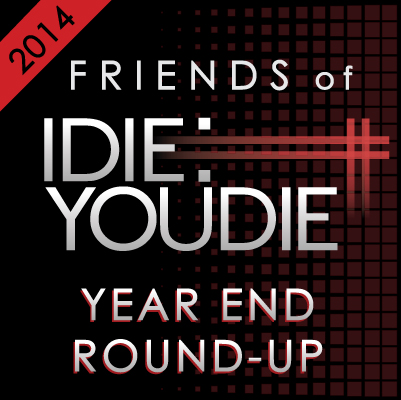

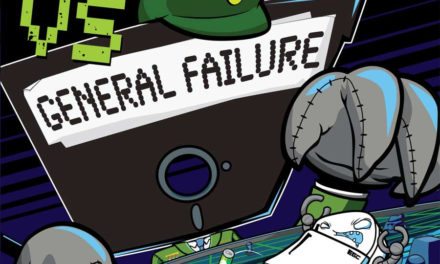
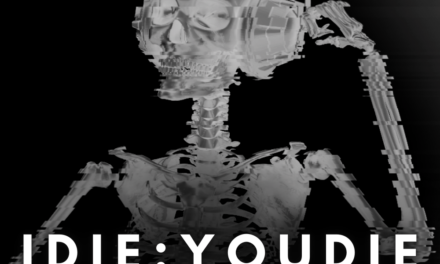

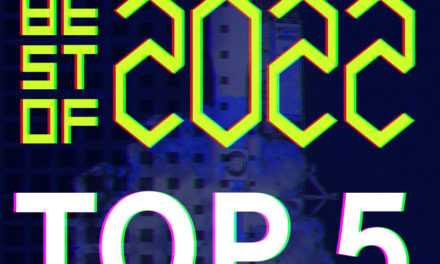
Where can I hear Iz?
Brad, start here: http://static.squarespace.com/static/50e79ec7e4b07dba60068e4d/t/548b26cee4b04f6e8e83eb2e/1418405582011/10+Temir+Ixken+Otte+Kerik+-+Blacksmithing+Bellows.mp3/original/10+Temir+Ixken+Otte+Kerik+-+Blacksmithing+Bellows.mp3
Struggling to find where I can find IZ material to buy?? Anyone know?
Tim, not sure about purchasing (I went through Chinese eBay) but you can hear their 2011 album on Spotify at https://play.spotify.com/album/0bphyhI6gAjtN3v0vydUJJ?play=true&utm_source=open.spotify.com&utm_medium=open
*coughcough* http://rutracker.org/forum/viewtopic.php?t=3908602
Here’s a legit page for Mamer/IZ, translated by Google, with usable links:
https://translate.google.com/translate?sl=zh-CN&tl=en&js=y&prev=_t&hl=en&ie=UTF-8&u=http%3A%2F%2Fsite.douban.com%2Fmamer%2F&edit-text=
Thanks Alex appreciated